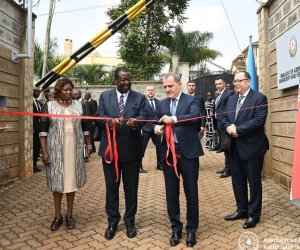PMI redefines strategy: What options exist for smokers now?

Philip Morris International (PMI) —a leading international consumer goods company continues to develop its portfolio of smoke-free products.
These products, the Company says, will enable it to move away from traditional cigarettes and make the transition to a smoke-free future. The company’s strategy is built on substantial investments in science, technology, and retail infrastructure. Italy plays a key role in this process as a manufacturing, export, and logistics hub.
$14 billion for science: a focus on harm reduction
Since 2008, PMI has invested over $14 billion in the development, commercialization and scientific validation of smoke-free products such as IQOS, nicotine pouches, and electronic vaporizers. These alternatives generated 42% of the company’s global net revenues in Q1, 2025. By 2030, PMI aims to raise this share to two-thirds.
The company cites scientific evidence that nicotine itself is not the primary cause of smoking-related diseases — the major harm comes from combustion. IQOS technology, which heats tobacco without burning it, has been authorized by the U.S. FDA to be marketed as a Modified Risk Tobacco Product (MRTP). It is not only US FDA, but also governments of Japan, New Zealand, Sweden, and many others who embrace the potential of smoke-free products in reducing the levels of smoking.
According to PMI, over 38 million adult smokers worldwide have already switched to its smoke-free products.
Since 2013, PMI has invested €1.2 billion in building a factory in Crespellano, Italy — the world’s first facility dedicated entirely to smoke-free product manufacturing. Today, this site serves as a major export hub for the company. In 2023, exports from Italy exceeded €1.9 billion.
The company is also actively investing in digital infrastructure (DISC centers), the Institute for Manufacturing Competences (IMC), and agricultural supply chains. PMI remains the largest private buyer of tobacco in Italy and has already invested around €2 billion to support local farmers.
Retail network and market coverage
As of March 2025, PMI’s retail infrastructure in Italy covers 58 million people, including 13 million legal-age nicotine users (LANU). In the Milano Area 2 region alone, dozens of point-of-sale (POS) sellers and customer-experienced coordinators operate. Each seller serves on average between 1,100 and 1,400 LANU — indicating a high level of engagement and market coverage.
The company focuses on personalized customer experience, face-to-face communication, and regional adaptability. Each zone is managed with cultural and behavioral sensitivities in mind.
Sustainability and recycling
By 2025, PMI aims to recycle at least 1 million used IQOS, LIL, and VEEV devices, with a targeted material recovery rate of over 80%. The company has also received international certifications for gender equality, fair pay, and family support policies.
Why does this matter for Azerbaijan?
With global interest growing in harm reduction strategies, PMI’s experience may serve as a model for countries seeking sustainable tobacco policy solutions.
Given Azerbaijan’s export ambitions and focus on localizing high-tech production, PMI’s Italian model presents strategic relevance in economic partnership and public health innovation. PMI’s smoke-free products are already present in Azerbaijan. Looking at the developed markets such as Italy allows to imagine a potential scope of business in other countries, including Azerbaijan as it progresses to sphere outside of oil industry. Smoke-free products, while not completely risk-free – are a better option for smokers who continue to use nicotine. A look at Italy gives understanding that smoke-free products have a huge economic potential.




































 Photo
Photo 



 Video
Video 

